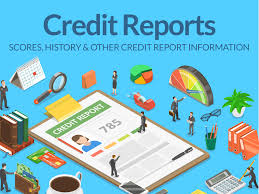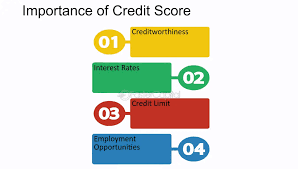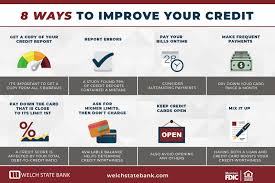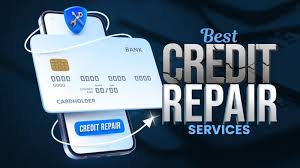Introduction: Why Credit Reports Matter in Today’s Financial Landscape
In the complex world of personal finance, understanding credit reports is like having a secret weapon for financial independence. For millennials and Gen Z, navigating the intricate terrain of credit can feel overwhelming, but it doesn’t have to be.
This comprehensive guide will demystify credit reports, empowering you to take control of your financial future and build a rock-solid financial foundation.
Credit reports are more than just numbers on a page – they’re your financial report card, telling a story about your money management skills, reliability, and potential. They can open doors to apartments, job opportunities, lower interest rates, and financial flexibility.
Yet, many young adults find themselves in the dark about what credit reports really are and how they impact their lives.
Table of Contents
What Exactly is a Credit Report?
A credit report is a detailed record of your credit history, compiled by three major credit bureaus: Equifax, Experian, and TransUnion.
Think of it as your financial biography – documenting every loan, credit card, payment history, and financial misstep or success you’ve ever had.
This document provides a comprehensive overview of your financial behavior, which lenders, landlords, and sometimes even employers use to assess your reliability.
Key Components of a Credit Report
- Personal Information
- Your full name
- Current and previous addresses
- Social Security number
- Employment history
- Credit Accounts
- Credit cards
- Personal loans
- Student loans
- Mortgages
- Auto loans
- Payment History
- Timely payments
- Late payments
- Missed payments
- Default notices
- Credit Inquiries
- Hard inquiries (when you apply for credit)
- Soft inquiries (background checks)
- Public Records
- Bankruptcies
- Tax liens
- Civil judgments
How Credit Scores are Calculated: The Magic Behind the Numbers
Your credit score is essentially a numerical representation of the information in your credit report. The most common scoring model, FICO, uses a range from 300 to 850. Here’s a breakdown of how your score is calculated:
- Payment History (35%): Your track record of paying bills on time
- Credit Utilization (30%): How much of your available credit you’re using
- Length of Credit History (15%): How long you’ve had credit accounts
- Credit Mix (10%): Types of credit you’ve managed
- New Credit (10%): Recent credit inquiries and new accounts
Credit Score Ranges Explained
- 300-579: Poor Credit
- 580-669: Fair Credit
- 670-739: Good Credit
- 740-799: Very Good Credit
- 800-850: Exceptional Credit
Why Millennials and Gen Z Need to Pay Attention
For younger generations, credit reports are more than just financial documents – they’re gatekeepers to opportunities. Here’s why you should care:
- Housing Opportunities Landlords frequently check credit reports to determine tenant reliability. A good credit score can mean easier apartment approvals and potentially lower security deposits.
- Employment Prospects Many employers conduct background checks that include credit reports, especially for financial and management positions.
- Lower Interest Rates A strong credit report can save you thousands of dollars in interest over your lifetime by qualifying you for better loan terms.
- Financial Flexibility Good credit opens doors to credit cards with better rewards, lower insurance rates, and more financial products.
Common Credit Report Mistakes to Avoid
1. Ignoring Your Credit Report
Many young adults make the critical mistake of never checking their credit report. You’re entitled to one free credit report from each bureau annually through AnnualCreditReport.com.
2. Maxing Out Credit Cards
High credit utilization can dramatically lower your credit score. Aim to use no more than 30% of your available credit.
3. Missing Payments
Even one late payment can stay on your credit report for up to seven years. Set up automatic payments to avoid this pitfall.
4. Closing Old Credit Cards
The length of your credit history matters. Keeping older credit accounts open can positively impact your score.
5. Applying for Too Much Credit
Each credit application generates a hard inquiry, which can temporarily lower your score.
Practical Steps to Improve Your Credit Report
1. Check Your Report Regularly
- Request free annual credit reports
- Look for errors or fraudulent activities
- Dispute any inaccuracies immediately
2. Build Credit Strategically
- Consider a secured credit card if you’re starting from scratch
- Become an authorized user on a parent’s credit card
- Take out a credit-builder loan
3. Practice Responsible Credit Management
- Pay all bills on time
- Keep credit utilization low
- Maintain a mix of credit types
- Don’t open too many new accounts quickly
Technology and Credit Monitoring: Tools for the Digital Generation
Fortunately for millennials and Gen Z, technology has made credit monitoring easier than ever:
- Credit Karma: Free credit score tracking
- Credit Sesame: Personalized credit insights
- Mint: Comprehensive financial tracking
- CreditWise: Free credit monitoring from Capital One
Dealing with Credit Report Challenges
If you’re facing credit challenges, don’t panic. Here are some strategies:
- Create a Debt Repayment Plan
- Negotiate with Creditors
- Consider Credit Counseling
- Be Patient – Credit Repair Takes Time
The Psychological Side of Credit Reports
Understanding your credit report isn’t just about numbers – it’s about financial empowerment. Your credit report reflects your financial decisions and can be a powerful tool for personal growth and financial independence.
Final Thoughts: Your Credit, Your Future
Your credit report is more than a document – it’s a roadmap to your financial potential. By understanding, monitoring, and strategically managing your credit, you’re investing in your future self.
Remember, building good credit is a marathon, not a sprint. Small, consistent actions today can lead to significant financial opportunities tomorrow.
Additional Resources
- Consumer Financial Protection Bureau (CFPB)
- National Foundation for Credit Counseling
- Credit.com
- NerdWallet
Disclaimer
While this guide provides comprehensive information, always consult with a financial advisor for personalized advice tailored to your specific situation.
Take Action Today
Start by requesting your free credit report, reviewing it carefully, and developing a strategic plan to build and maintain excellent credit. Your future self will thank you.
![]()




